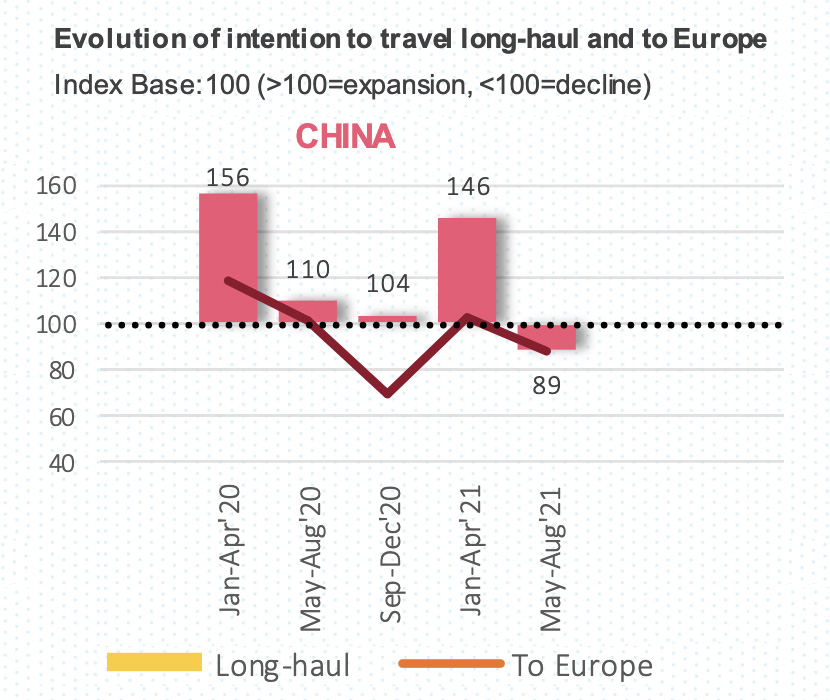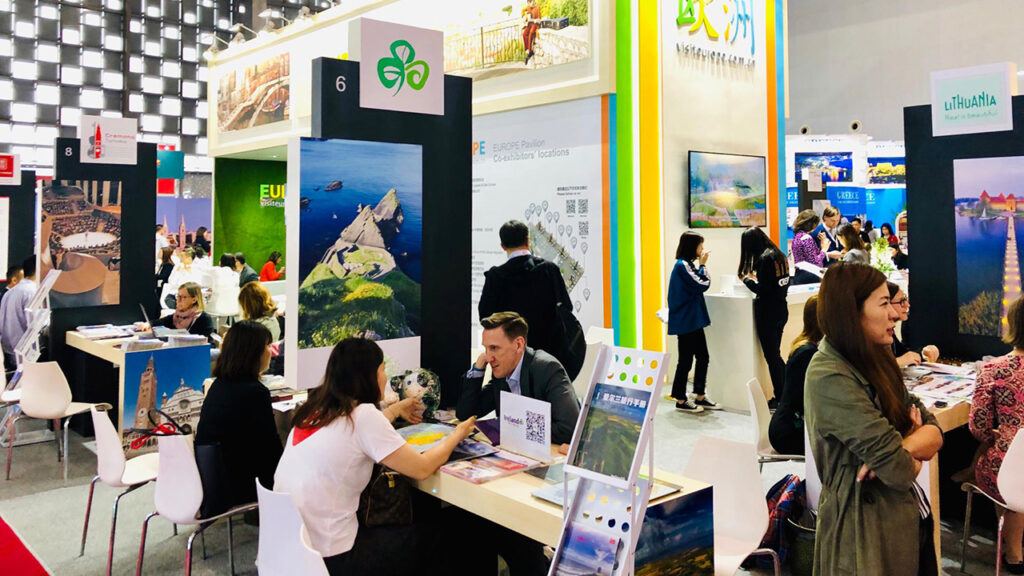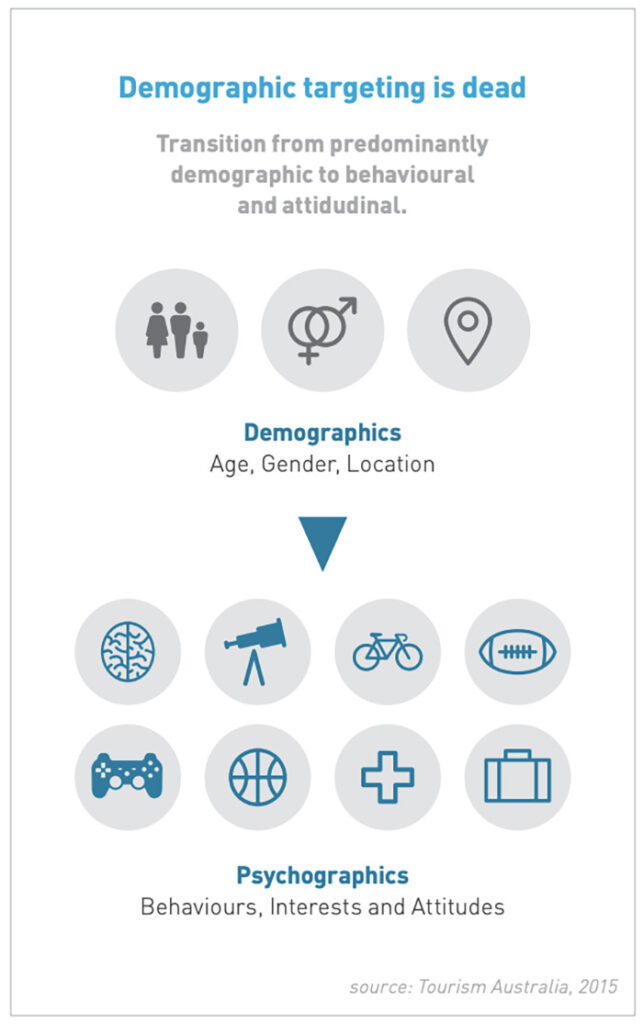After a year of collapsed travel bubbles, ceaselessly shifting regulations, and disruptive new variants, it takes a brave individual to make predictions on China’s outbound tourism market. But when it comes to identifying the characteristics of future Chinese travelers to Europe, Eduardo Santander, CEO of the European Travel Commission (ETC), is somewhat bullish.
Whistle stop bus tours covering half a dozen European countries in as many days will no longer dominate, Santander says, replaced by a new mode of slower, interest-based independent travel, often to lesser-known destinations. Domestic data backs up this assessment: Trip.com recorded a 400 percent year-on-year increase in small group travel in 2021 and rural provinces such as Ningxia and Xinjiang have seen bookings triple, predominantly from post-’90s and post-’00s travelers.
When exactly this rejuvenation will benefit Europe remains uncertain. ETC’s Long Haul Travel Barometer from June showed just 53 percent of Chinese surveyed are eager for overseas travel to return and a mere 26 percent expressed confidence in traveling to Europe even if permitted. In the interim, ETC is strengthening its ties through a strategic partnership with ITB China, the country’s largest B2B travel fair, holding virtual events connecting members and Chinese businesses and, more broadly, rewiring its approach to the world’s largest tourist market.

ETC’s Long Haul Travel Barometer found weak sentiment for long-haul and European travel among Chinese tourists, the potential recovery of which would depend on Europe and China’s quarantine and travel protocols, and its willingness to welcome visitors who have received the Sinovac vaccine. Image: European Travel Commission
This shift is spelled out in ETC’s Horizon 2022 strategy, which aims to compensate for the paltry marketing budgets of European NTOs, the predicted downturn of the continent’s long haul market share by 2035, and its generic image (based off internet search data) by encouraging destinations to advertise their niche appeal and “connect with people’s passions.”
A decade on from ETC’s first foray into China, Santander discusses the ITB China deal and what thematic tourism will look like for European stakeholders.
How do you approach the outbound Chinese market given its resumption is somewhat unknowable and uncontrollable?
Obviously, the biggest challenges before we even start talking about the recovery of tourism from China to Europe are the opening of borders, and mutual recognition of vaccination and digital health certificates. All of these factors are in the hands of governments. As Europe has successfully restarted travel and mobility across the region this summer, we just hope cooperation with Chinese authorities can be developed quickly.

To ensure a continued connection with travelers and partners in China as part of its recovery efforts, ETC is maintaining a strategic partnership with ITB China, the country’s largest B2B travel fair. Image: ITC China 2019, European Travel Commission
Given this uncertainty, what does attendance at ITB mean for European stakeholders?
We believe attendance at ITB China is a win-win for European and Chinese partners. It opens opportunities for trade and investment and lays the foundations for better cooperation and understanding new trends. We need to concentrate on building long-lasting relationships and understanding each other’s needs better so we can prepare for the post-COVID restart of international travel as soon as the situation allows.
You mention new trends. Which ones from China’s domestic market have captured your attention?
The most important trend we see is the shift from group travel towards FIT and semi-customized travel focused on in-depth experiences. A new model of more conscious and slow travel is emerging in China, especially among young, tech-savvy and bilingual people traveling off the beaten path. In addition, self-driving and small private groups will become more and more popular.

Horizon 2022, ETC’s strategy for the Europe travel sector, urges an overhaul of its generic image and demographic targeting. Image: European Travel Commission
How is ETC helping members connect with these independent Chinese travelers?
Our global marketing strategy, Horizon 2022, was created exactly with this new type of traveler in mind. It focuses on promoting Europe through three passions: creative cities, nature and the outdoors, and history. A thematic approach, rather than geographic segmentation, means products and experiences come first, rather than destinations. The strategy is aimed at attracting individual tourists willing to immerse themselves and adventure.
For example, our first Europe Virtual Travel Trade show this April allowed European companies to exchange thoughts with Chinese partners and gain insights on new Chinese travel attitudes.
How else is the pandemic influencing Chinese travel habits?
Chinese tourists have always valued travel safety and this hasn’t changed — almost 25 percent of travelers see safety as the most important factor influencing their choice of destination. The flexibility of travel bookings is also more crucial than before. Tourists don’t want to worry about canceling a booking if the pandemic situation in a travel destination worsens.
Recent reports show a considerable drop in booking time in China. In 2020, more than 88 percent of online hotel bookings [on Tongcheng, a travel platform] were made on arrival day and more than 60 percent of flight bookings were made three days or fewer in advance. Local OTAs adjusted booking policies to meet travel expectations and offer security and European travel providers will have to cater to these new trends.
What does a successful ITB China 2021 look like?
As Europe opens for travel, it’s crucial to intensify dialogue between European and Chinese partners on pressing issues that will help us embark on our common journey towards the recovery of tourism. We hope our efforts will result in more awareness and willingness of Chinese travelers to visit Europe and also make Europe ready to welcome Chinese travelers when the time is right.



